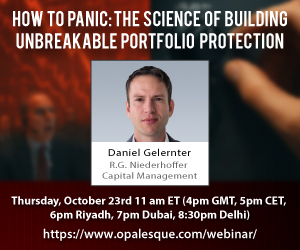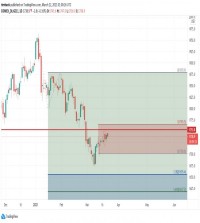|
|
Rushdi Siddiqui is the Global Head of Islamic Finance and OIC Countries at
Thomson Reuters (TR). He works closely with Islamic finance stakeholders, Halal
industry, and the OIC countries. Rushdi recently received an award at the 2nd
Sri Lanka Islamic Banking & Finance Conference for Contribution to Islamic
Banking in Sri Lanka (2010). Mr. Siddiqui joined Thomson Reuters from Dow Jones,
where he was global director for their Islamic Market Indices. Over his 10 years
there, Mr. Siddiqui led the entry and expansion of the Dow Jones Indexes into
Islamic finance, resulting in numerous awards from leading finance organizations
and media outlets. Mr. Siddiqui has considerable experience in the financial
markets, having worked at a Wall Street investment bank and commercial bank in
the 1990s. Mr. Siddiqui has authored a number of white papers and articles on
Islamic indexes for publications including WIEF, ABANA Review, CPI Financial,
the Chicago Journal of International Law, Euromoney, writes fortnightly for Gulf
News, and is a frequent speaker at industry events hosted by Harvard, Columbia
Business School, London Business School, Oxford, the Economist, Islamic
Development Bank, Bahrain's BIBF, Malaysia's MIFC, IIRME (Dubai), and more. Mr.
Siddiqui holds a JD from Albany Law School of Union University, an MBA in
international business from Baruch College, and a Bachelor of Science in
Management and Marketing from New York University.
The continued pursuit of the proposed 'Ground Zero Mosque' by Imam Feisal Abdul
Rauf (also known as Project51) has incited a major protest near ground zero, led
to the announcement of 'Koran burning day' out of Florida, a NYC Muslim cab
driver being stabbed, finger-pointing of bigotry, raised as an issue for some
candidates in the November elections, and so on, hence, unnecessarily
stress-testing the US Muslim community without achieving any high moral ground.
We have an estimated 2000-3000 mosques in the US, from basements to grand
architectures, and yet, there already exists several mosques within waking
distance from Ground Zero. The New York Times columnist, Thomas Friedman, in a
recent column, 'Surprise, Surprise, Surprise,' raises an interesting point about
the need of the hour in the Islamic world for intra-communal bridge-building,
akin to Nelson Mandela. Now, what advice would Mr. Mandela give the Imam
regarding the community center?
In Mr. Friedman's words, 'When the post-apartheid, black-led South African
sports committee moved to change the team's name and colors, President Mandela
stopped them. He explained that part of making whites feel at home in a
black-led South Africa was not uprooting all their cherished symbols. "That is
selfish thinking," Mandela, played by Morgan Freeman, says in the movie Invictus.
"It does not serve the nation." Then speaking of South Africa's whites, Mandela
adds, "We have to surprise them with restraint and generosity." It may not be
too late for the Imam to 'surprise' the protestors with 'restraint' and
relocation. The issue on relocation should be reasonable, otherwise it becomes a
religious issue and not a sensitivity concern.
Mosques
Mosques are an important symbol of the Muslim community 'having arrived' in a
new country, no different than building a Synagogue for Jews or a Church for
Christians. It is an interesting indicator on the pulse of the local Muslim
community for affluence, ethnicities, politics, and, at times, even
interpretation of Islam. According to the protestors this is not a freedom of
religion issue (to build the mosque), but insensitivity on the location of the
mosque.
To some, the reality of the situation is most mosques are 'full' during Friday
Jumma prayers and during the month of fasting (Ramadan). Nevertheless, during
the remainder of the times, especially weekdays, a Mosque's Imam has had to
encourage the worshippers to come to the mosque. At one level, its not about
building a mosque, but constructing another mosque in 'visual' vicinity of other
mosques.
During the ensuing media circus, two interesting points have been flushed by
some in the US Muslim community as well as the vocal non-Muslim minority . Did
the Imam reach out to US Muslims about the location of the mosque? One wonders
if the Imam is able to get a permit for a 'Mosque March,' in, say, Washington,
DC, which may be less heated than one in NYC, what kind of support he would
gather, in terms of numbers, from both Muslims and non-Muslims?
The second point, it is easier to build a mosque in the US than a
Church/Synagogue in a Muslim country. Maybe the Imam's Cordoba Initiative needs
to expand the inter-faith dialogue to selected Muslim countries. It would indeed
test the Imam's ability to be the voice of non-Muslims in a Muslim country for
building a house of worship. Being on a recent State Department sponsored trip
to the Gulf countries, he may want to test the waters of bridge building,
instead of sticking to the script.
These houses of worship and their activities, be it a mosque, church or
synagogue, facilitate intra-community and inter-community dialogue, and
community leaders are mindful of location resulting in provocation. To a number
of people, Ground Zero is seen as a sacred cemetery of nearly 3000 graves,
hence, an obvious expected push back on building a mosque on a cemetery. To
them, no different than building a Japanese shrine at Pearl Harbor, legally
doable but morally questionable.
Inter-Faith Dialogue
Interfaith dialogue has been around before the tragedy of 9/11, but this mosque
scenario has flushed out the need for more meaningful ways to lift ignorance
about Islam and Muslims. One of the most often heard phrases is, 'not all
Muslims are terrorists, but all terrorists are Muslims,' hence, something more
pronounced needs to be introduced in the dialogue. The Bush Administration, now
the Obama Administration, and the media seem to go to Imam Feisal Abdul Rauf for
issues related to Islam/Muslims, giving the impression there are no comparable
qualified Imams in the US. Lets hear what the Imams in Chicago, Los Angeles,
Houston, and other places have to say about the location of the proposed mosque
and on inter-faith dialogue.
The US had no Grand Mufti, and we do not need one today as it will inevitably
result in talks of conspiracy theories, much like state controlled Friday (Jumma)
sermons (Khutbahs) in selected Muslim countries. The last thing the Imam wants
is to be seen as a 'contractor' (some would say 'puppet') of the State
Department, as his credibility will take a beating in the Muslim world.
Today's ignorance-removal, for Muslims and non-Muslims, requires something
deeper than inter-faith dialogue, as it sometimes becomes a photo opportunity
with the usual sound bites. The history and contribution of Islam/Muslims is a
visual story, rich with inventions and innovations, pioneering men and women,
and compassion and convergence towards non-Muslims. This cannot be captured in a
controlled two-hour town hall meeting with glowing speeches and repetitive type
of questions, as the message does not reach the masses.
Islamic Museum
Lets take a cue from the enlightened country of Qatar, which has been involved
in hosting a dialogue for several years in Doha about Islam and the West. Qatar,
like Abu Dhabi, wants to the cultural hub for the Muslim world, and recently
opened an Islamic Arts museum, i.e., utilizing culture to build bridges between
civilizations.
It make sense to focus on the Museum part of Project51, as that would show the
history of Islam and Muslim contributions to mankind, from mathematics to music
to mechanical engineering. This is the opposite message of the extremists. Such
a project would have an easier time in raising the funds domestically in a
transparent manner, as many Muslims may not be informed or aware of our rich
history. For example take the recent exhibition '1000 Inventions' at London's
Science Museum, which profiled Muslim contributions to society.
Another example is the King Abdullah University of Science & Technology (KAUST)
near Jeddah, which has a Museum of Science & Technology in Islam (MOSTI).
According to their website, '[T]he Museum celebrates the contributions of Muslim
scholars to science and technology during the first Golden Age of Islam from the
7th to 17th century. These Muslim scholars include amongst them the great
scientists, inventors, engineers, mathematicians and teachers of that time, such
as Jabir ibn Hayyan, Abbas bin Firnas, al-Kindi, al-Razi, al-Jazari and Taqi
al-Din.'
Museums and Exhibitions about Muslim contributions to mankind is the need of the
hour, over another mosque, to build bridges between civilizations, whilst
breaking walls of ignorance.
Cordoba
Cordoba, in the history of Islam, was an era of education, enlightenment and
inclusiveness to the major faiths, meaning reasonable sensitivities were
acknowledged and actions done accordingly.
To say the Imam and the developer behind this project did not expect this kind
of divisive uproar on the mosque location implies their ignorance of their
namesake organization: Cordoba Initiative. Put the ego to the side by offering a
'Cordobian' gesture, build Project51 with emphasis on the ultimate bridge
builder of civilizations, understanding, and appreciation: an Islamic Museum,
which could include Islamic finance, and let Islamic finance, via Sukuk, fund
its building.
Several hypothetical queries can be raised here: What would be the reaction by
the media and/or opposition if, instead of mosque, it was an Islamic bank near
Ground Zero (which is in the proximity to Wall Street's financial district)? One
wonders if it would make a difference if the backers of the proposed banks were
from secular democracies, like Malaysia and Turkey, instead of Arabs?
The passage of time commences the healing process of the trauma and tragedy of
9/11 on the psyche of Muslims and non-Muslims leaving a soft scab, but such
undertakings, location of Mosques near Ground Zero's 'sacred cemetery', just
pulls it raw. Moving the mosque is not a defeat for Muslims/Islam or caving to
extremist, but rather being good neighbors. The same neighbors that may
understand and possibly join in the celebration of Eid-il-Fitr if it falls on
September 11th!
The article is written in the author's personal capacity and does not
represent the views of his employer.
Your feedback and comments are very important to us, please feel free to contact
the author via email.
|





 RSS
RSS










